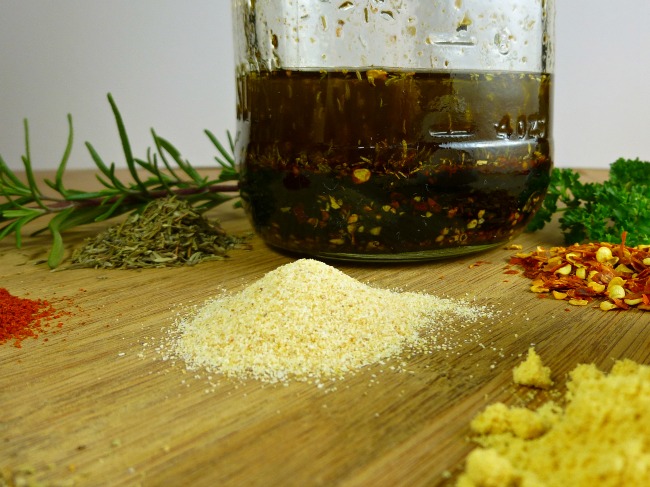
Arkansas farmers are some the best in the world. Cattle, pork and poultry farmers provide a reliable, safe source of the very best meat for people not only in Arkansas, but around the world. One way to make a delicious meal is by marinating Arkansas-grown meat.
Marinating is soaking meats or vegetables in a mixture of oil, an acid and herbs and seasonings to tenderize and impart flavor. It’s not complicated but can add simple goodness and tantalizing flavor to your meal. The great thing about marinating is you can custom-fit your marinade to your meat and your family’s tastes.
Basic Components of a Marinade
Oil
The most common oil used in marinades is olive oil. However, any type of vegetable oil can be used: canola, soy, peanut, corn, etc. Or branch out and try some of the more exotic oils such as avocado, almond, sesame and sunflower. The oil acts as a carrier for flavor, helping it to penetrate the meat.
Acid
The acid in the marinade breaks down the meat tissue, so moisture and flavor can enter the meat. Vinegar (especially balsamic), wine, fruit juices (lemon, lime, orange, pineapple), buttermilk, yogurt, milk, etc. are all great choices for the acid in a marinade.
Flavor
Get creative and develop your own flavor combinations to please your family’s taste buds. Garlic is one of my essential ingredients in a marinade. Crush the garlic to really bring out its flavor. Fresh chopped onions and peppers add amazing zip and can be cooked along with the meat for a wonderful complementary side. Add hot peppers, ground pepper or hot sauce to make things a little spicy. And add favorite herbs, fresh or dried, to fit your tastes. Soy and Worcestershire sauce can add a unique taste, too.
Sweet
I like to add a bit of sweet to my marinades, especially if I want a caramelized outside to my chicken or meat. The sweet creates an outer seal to the meat, holding in its moisture and flavor. It also helps it to brown. Sugar substitutes won’t work, but honey, brown sugar and maple syrup are great choices. If you don’t want a sweet taste, don’t add one. Remember, it’s your custom marinade.
Salt
Some folks won’t mix a marinade without salt. Most of the time, however, I leave it out. I tend to use brine if I’m in the mood to add salt. I really don’t find it necessary in the marinating process.

Marinating Tips
*A ratio of 2:1 is a general guideline for measuring your acid and oil. However, some recipes call for a 3:1 acid/oil ratio. If you don’t want the extra fat, reduce the oil.
*You don’t need to completely immerse your meat in the marinade. Just make enough to coat it well (about a cup). Add a bit more acid if needed. Turn larger pieces periodically to keep all sides covered.
*To avoid cross-contamination, make extra marinade beforehand. Set aside and refrigerate enough to baste your meat while cooking. Never use the same marinade to marinate that you use to baste.
*Use a sealed container (plastic, glass, stainless steel) to marinate your meat. Do not use an aluminum container. The acid can react with it, fouling the marinade taste. I typically use a gallon-sized plastic zip-seal bag placed in a bowl. This allows for turning the bag to evenly coat the meat and prevents leaks in the refrigerator.
*Place sealed marinating container on the lower shelf in your refrigerator. If there are any spills, you won’t contaminate other food items.
*You can marinate anywhere from 30 minutes to 24 hours. Use shorter periods of time for vegetables and smaller pieces of meat. Use longer time periods for larger and tougher meat cuts.
*I usually marinate venison (and other wild game) for 24 hours. I use milk as the acid to tenderize and remove the gamey flavor.
